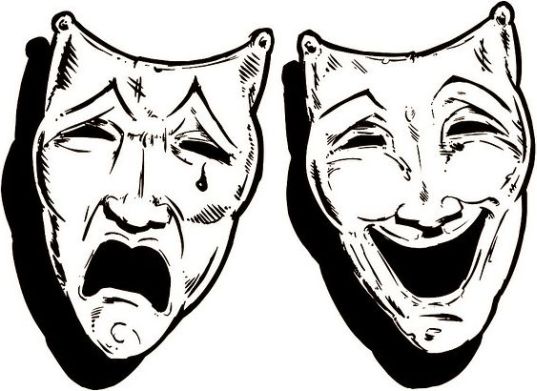|
When the Self acts in every one of the other billions of roles of the Divine Play, it plays the parts of you and I. That's who we really are: the Self. Our roles in the Divine Play are all acted by the Self cleverly pretending to be separate you and separate I. The Self is so good at acting in the roles of you and I that we've forgotten who we really are.
Key to discovering who you really are is discovering your act ie the role you play. You've forgotten you're just acting (this is the Divine Play, remember?). It's your act which prevents you being authentically who you really are. The act you play is the basis of your strong suits. It's the basis of your rackets. It's the basis of who you consider yourself to be - in other words your act was in place even prior to your identity.
Your act is where you come from - albeit unknowingly, albeit unwittingly. It's a context for your life. And the thing of it is when you first created your act, you created it as a command ... yes, a command uttered in a moment of real or imaginary failure.
I came home from school one day. It hadn't been a good day. I had been teased by some boys in my class (in those days bullied referred to teasing accompanied by physical abuse). I walked back to our house (my school was close enough) afraid, helpless, upset. My mother Andee was sitting at her classic Singer sewing machine.
As she sewed she asked me how my day went. I was embarrassed and didn't want to talk about it. I told her so. She asked me to tell talk about it. I told her so. She asked me to tell her what happened anyway. I again said I didn't want to. When she asked me a third time, I relented and told her - in great detail. It was uncomfortable and cathartic to recall the whole awful experience. When I finished she said "It couldn't have been as bad as that Laurence. You're making it up.".

